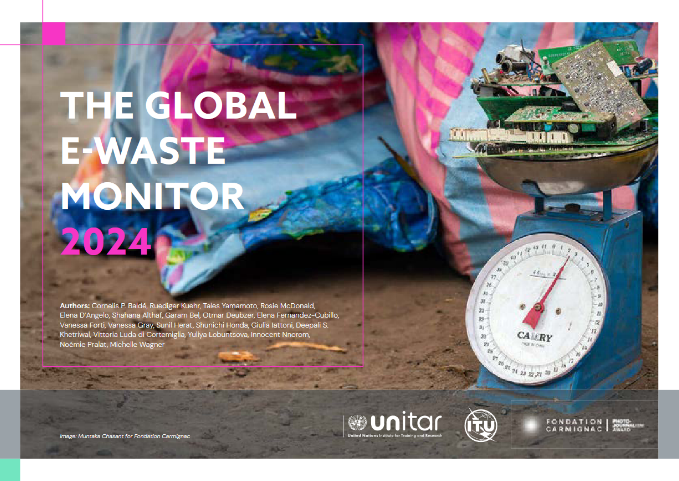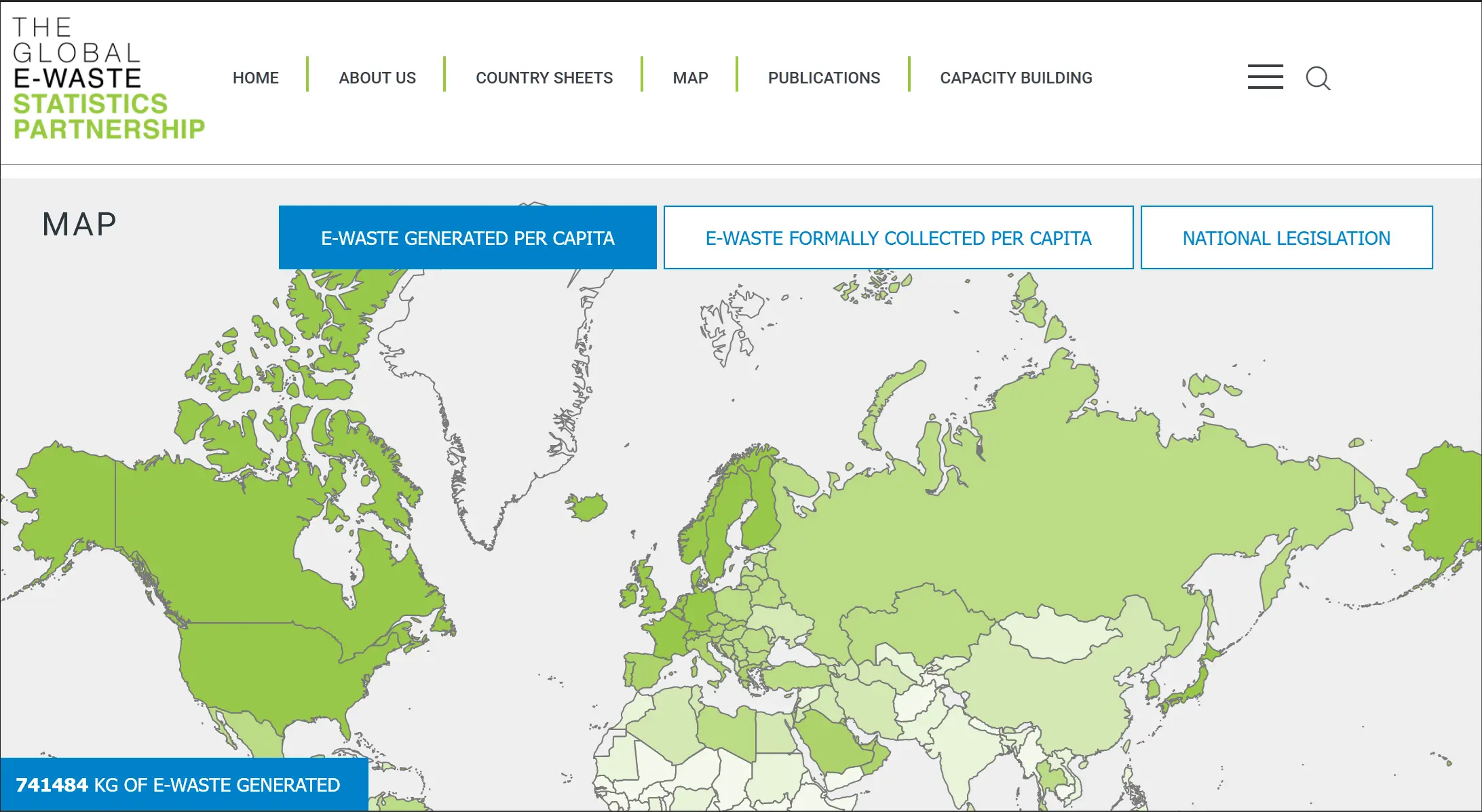
E-waste
Tackling the Global E-Waste Crisis: Key Insights and Strategies
Electronic waste (e-waste), also known as Waste from Electrical and Electronic Equipment (WEEE), contains valuable metals such as gold, silver, copper, platinum, and rare earth elements. These metals are critical for manufacturing new electronics, renewable energy technologies, and other high-tech applications. However, the improper disposal of e-waste leads to the loss of these valuable resources and the contamination of soil and water.
The Global E-Waste Monitor 2024

E-waste is a critical global issue with significant environmental and health impacts. The Global E-Waste Monitor 2024, developed by the Sustainable Cycles (SCYCLE) Programme from UNITAR, provides a comprehensive analysis of the current state of electronic waste globally. This fourth edition of the Monitor highlights significant trends and challenges in managing e-waste and offers critical data and insights for policymakers and industry stakeholders.
The report underscores the urgent need for improved e-waste management practices globally, emphasizing the importance of robust infrastructure, better policies, and international cooperation to tackle the growing e-waste crisis effectively. For more information, access the full report on the UNITAR website or the E-Waste Monitor website.
Key Findings from the Global E-Waste Monitor 2024
- Generation: 62 million tonnes in 2022, expected to reach 82 million tonnes by 2030.
- Recycling Rates: Only 22.3% of e-waste was properly collected and recycled in 2022.
- Resource Loss: Approximately US$ 62 billion worth of recoverable natural resources are lost annually due to inadequate recycling efforts.
- Health and Environmental Risks: E-waste contains hazardous substances such as mercury, lead, and cadmium, posing significant health and environmental risks.
Explore the interactive map for global e-waste data.
JRC's Role in Mitigation Strategies
The European Commission's Joint Research Centre (JRC) plays a pivotal role in addressing the e-waste challenge through advanced research and policy recommendations, such as the Safe and Sustainable by Design (SSbD) framework.
- Safe and Sustainable by Design (SSbD):
- Incorporates safety, sustainability, and efficiency into product design from the beginning.
- Aims to reduce environmental impact, extend product life, and facilitate recycling.
- Focuses on producing long-lasting, repairable, and upgradeable electronic products.
- Promotes recyclable and environmentally friendly materials, lowers hazardous substances, and supports circular economy principles.
- Encourages consumer education on proper e-waste disposal, fostering sustainable consumption patterns.
Latest Publications:
Here are some of the latest publications addressing e-waste management and mitigation:
- Waste Electrical and Electronic Equipment (WEEE) Handbook:
- Analyses the potential for recovering critical raw materials like rare earth elements from e-waste.
- Highlights technological advancements needed for efficient recovery.
- Towards an Effective Right to Repair for Electronics:
- Explores state-of-the-art recycling technologies.
- Enhances material recovery from e-waste.
- Novel indicators to better monitor the collection and recovery of (critical) raw materials in WEEE: Focus on screens:
- Identifies best practices and strategies to improve e-waste collection and processing within the EU.
- Aims to boost recycling rates and reduce environmental impact.
- Offers insights for improving sustainability.
- Guidance for the Assessment of Material Efficiency: Application to Smartphones:
- A detailed review of smartphone e-waste flows.
- Focuses on recycling practices and potential improvements to reduce environmental impact.
The European Union is addressing the e-waste crisis with strong policy frameworks, cutting-edge research, and technological innovations. These efforts transform challenges into opportunities for sustainable development, highlighting a commitment to mitigating the global e-waste issue.

